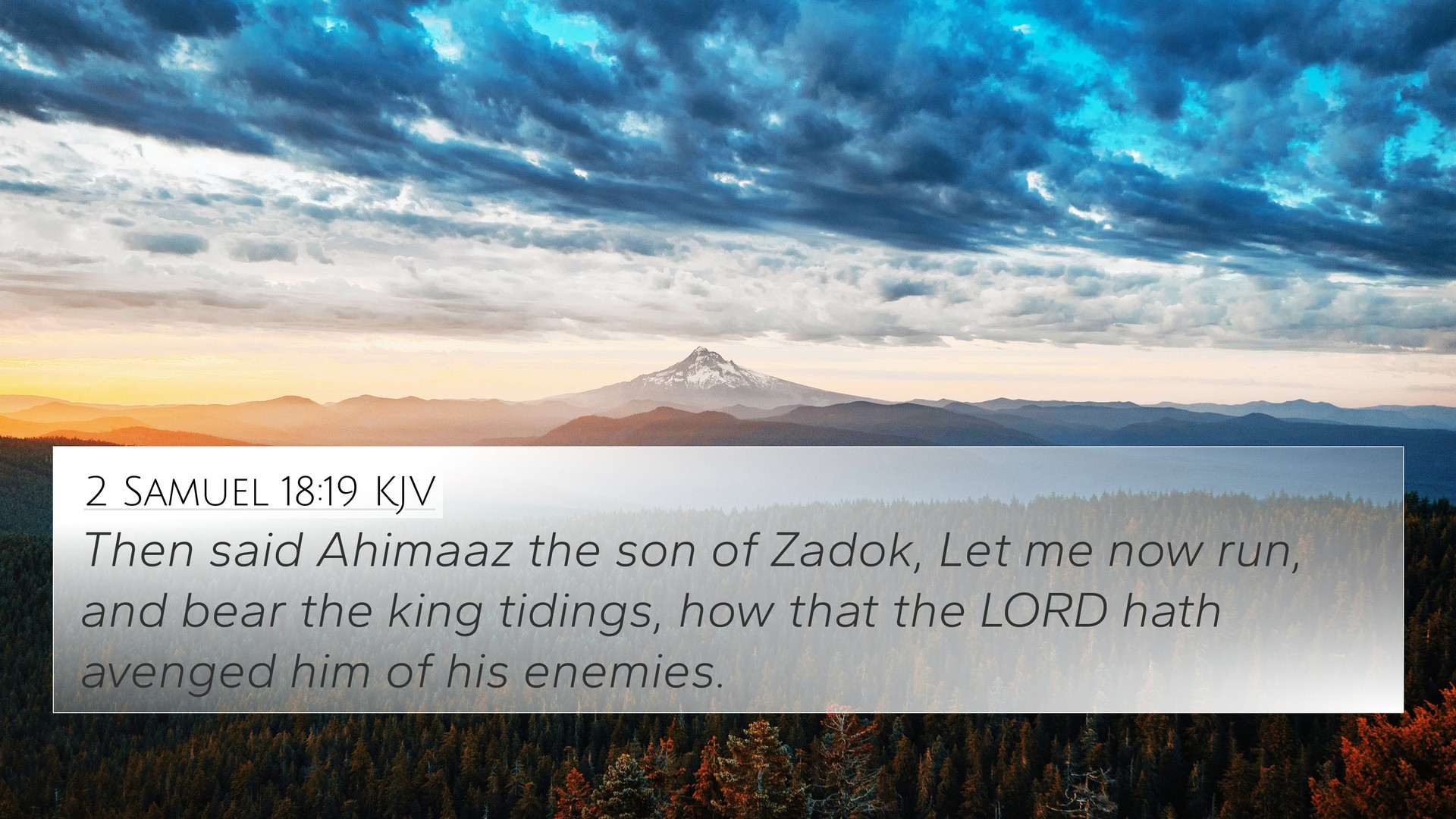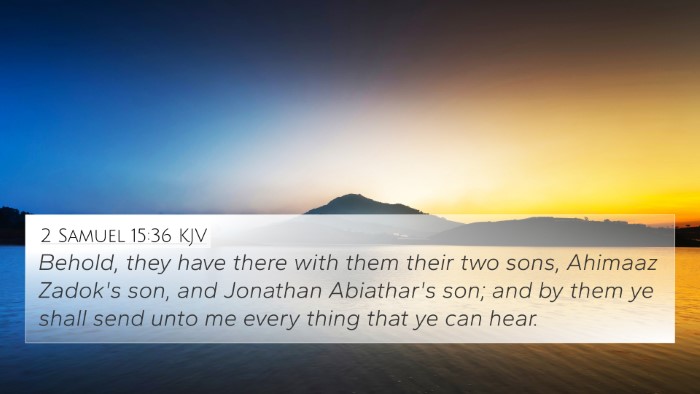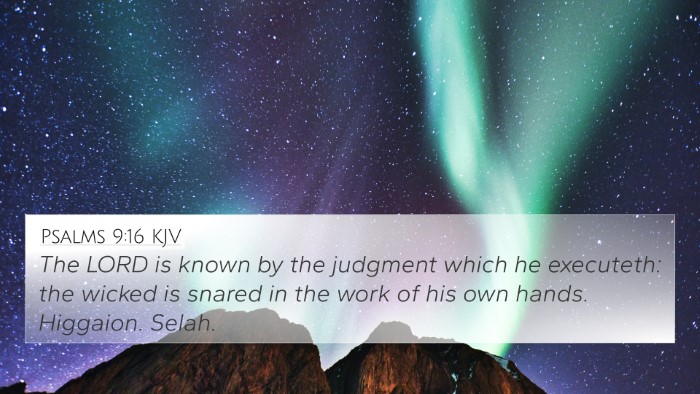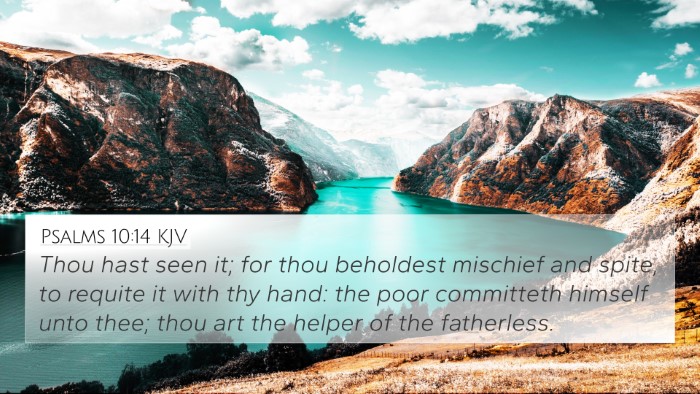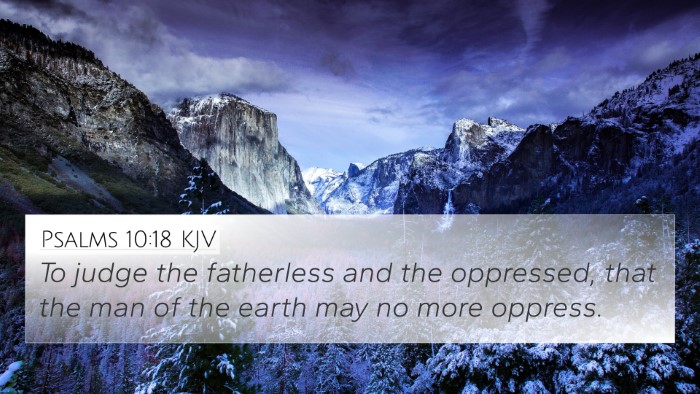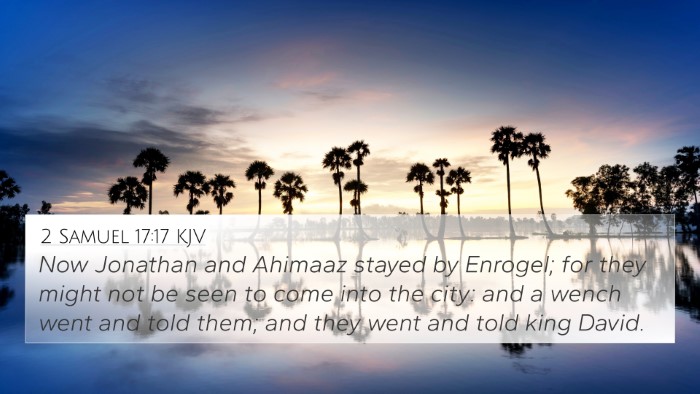Understanding 2 Samuel 18:19
2 Samuel 18:19 states: "Then Ahimaaz, the son of Zadok, said, Let me now run and take the tidings to the king, how that the Lord hath avenged him of his enemies." This verse presents an important moment in the narrative of King David, reflecting themes of loyalty, the joy of victory, and the urgency of delivering good news.
Contextual Background
This verse is situated in the aftermath of Absalom's rebellion against his father, King David. The battle of Ephraim's Wood results in David's enemies being defeated. Ahimaaz, as one of David's loyal messengers, feels compelled to relay the good news of this victory, highlighting his dedication.
Key Themes and Interpretations
-
Loyalty and Service:
Ahimaaz's desire to deliver news showcases a profound loyalty to King David. Commentators like Matthew Henry emphasize that a true servant of God is zealous to share victories and blessings.
-
The Joy of Victory:
The verse illustrates the elation of victory not just for David, but as a shared joy among his loyal servants. Albert Barnes notes how this elation is a crucial aspect of spiritual and communal life within the Church.
-
Divine Justice:
David's enemies, specifically Absalom, represent opposition to God's will, and Ahimaaz's news embodies the vindication of divine justice. Adam Clarke explains how this reinforces God's sovereignty over human affairs.
Bible Verses That Relate to 2 Samuel 18:19
- 1 Samuel 30:18: "And David recovered all that the Amalekites had carried away." - This illustrates a parallel in the theme of restoration after a battle.
- 2 Samuel 15:14: "And David said unto his servants, Arise, and let us flee." - This highlights the contrast of despair before victory.
- Psalm 44:7: "But thou hast saved us from our enemies." - Acknowledges God's role in fighting on behalf of His people.
- Proverbs 21:31: "The horse is prepared against the day of battle: but safety is of the LORD." - This reflects the victory being attributed to divine intervention.
- Isaiah 61:1: "To proclaim liberty to the captives..." - This emphasizes the deliverance theme consistent throughout Scripture.
- John 16:33: "In the world ye shall have tribulation: but be of good cheer; I have overcome the world." - Connects the triumph of Christ over adversaries to the victories of God's people.
- Revelation 19:11: "Faithful and true, and in righteousness he doth judge and make war." - Reflects the eventual victory of Christ, drawing thematic lines back to Ahimaaz's news.
Cross-Referencing Biblical Texts
The act of cross-referencing helps in drawing connections between various themes and narratives in Scripture. Here are some insights into using cross-reference tools:
-
Understanding Biblical Context:
Tools for Bible cross-referencing can elucidate the connections between Bible verses. By studying interlinked passages, such as those mentioned above, one gains a deeper understanding of the thematic dialogues within Scripture.
-
Finding Cross-References:
Individuals can explore cross-references in the Bible through concordances and cross-reference guides to identify how verses relate to specific themes or events.
-
Bible Study Methods:
Effective cross-referencing can enhance Bible study, helping to draw parallels between narratives, teachings, and the overarching message of salvation and divine intervention.
Concluding Thoughts
In summary, 2 Samuel 18:19 serves not only as an account of a messenger in a moment of triumph but also encapsulates profound truths regarding loyalty, divine justice, and the nature of victory through God's grace. Understanding this verse, with its related texts and themes, enriches one's reading of the Bible and illuminates the intricate patterns woven through Scripture. By engaging in comparative Bible verse analysis and fostering connections between biblical texts, readers can deepen their faith and understanding of God's plan.
